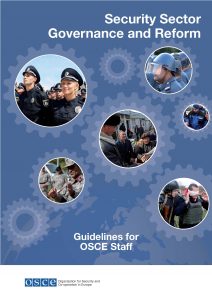
These guidelines provide OSCE staff with advice on supporting cross-dimensional approaches to security sector governance and reform (SSG/R). The purpose of such approaches is to promote a move away from the kind of fragmented support which has a limited impact and towards the practice of building on cross-dimensional synergies. This is done in order to provide coherent and effective support for the pursuit of common strategic SSG/R objectives. While the guidelines are designed for the use of OSCE staff, they may also be of relevance to other national and international actors seeking to enhance their support in the field of SSG/R.
For more information please
download the document Eng
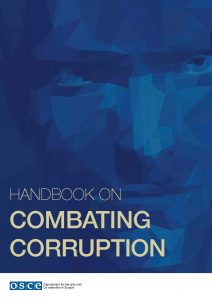
This handbook is a reference guide on available legal tools, the latest legislative and policy trends, and pertinent measures and practices to prevent and suppress corruption. The handbook is aimed at raising awareness of the range of international instruments available to national policymakers and anti-corruption practitioners.
For more information please
download the document Eng
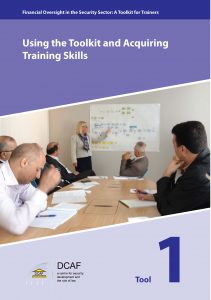
This Toolkit is designed for financial oversight practitioners who wish to gain access to best international practices in financial oversight of the security sector, improve their professional ability to financially oversee security sector institutions, acquire a more proactive attitude towards conducting thorough financial oversight activities of security sector institutions, and assert their authority in scrutinizing budgets and financial operations conducted by security sector institutions.
For more information please
download the document Eng
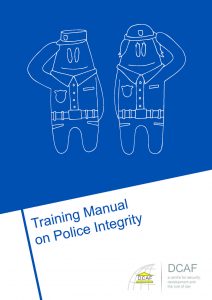
The Training Manual on Police Integrity aims to assist ministries of interior, police services and training institutions in developing their capacities to deliver integrity training to their staff. The Training Manual also provides guidance on how to build and sustain organizational integrity through effective planning and management of human resources and reform processes.
For more information please
download the document Eng
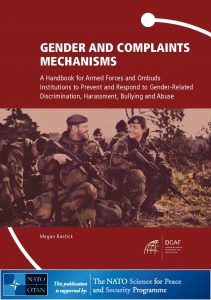
This handbook brings together knowledge and experience as regards prevention of misconduct, and handling and monitoring of complaints within armed forces, with particular regard to gender. The Handbook is a resource for armed forces, ministries of defence, ombuds institutions and others that manage and oversee armed forces in:
- establishing a safe and non-discriminatory environment for men and women in the armed forces;
- dealing with instances and complaints of gender-related discrimination, harassment, bullying and abuse in the armed forces; and
- monitoring and overseeing the handling of instances and complaints of gender-related discrimination, harassment, bullying and abuse in the armed forces.
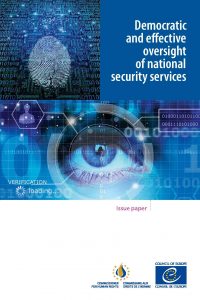
With the permission of the Council of Europe, DCAF has translated the Council of Europe Commissioner for Human Rights’ May 2015 Issue Paper on ‘Democratic and effective oversight of national security services’ (link to original source here) into several languages, some of which, including the English original, are available below. This issue paper focuses on the oversight of state bodies, including both autonomous agencies and departments/units of other government departments or the armed forces, that have a mandate to collect, analyse and disseminate intelligence within the borders of their state in order to inform decisions by policy makers, military commanders, police investigators and border/customs agencies about threats to national security and other core national interests. The Paper also includes a number of recommendations on the basis of the issues raised by this issue paper formulated by the Council of Europe Commissioner for Human Rights.
For further information on the Council of Europe and its publications please visit their web-site here.
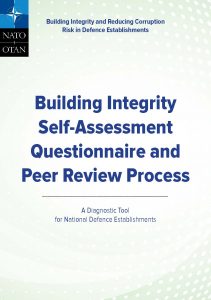
This Building-Integrity handbook contains a questionnaire, guidance on organising the process in-country, a sample note which can be used to brief the Defence Minister or Head of the Armed Forces on how to introduce the peer review process, and an outline of the format of the visit by the NATO review team. A separate Word document is available for recording the results of the questionnaire. While aimed primarily at Defence, the nation may apply the Integrity Self-Assessment Process to other Ministries and institutions in the security sector.
For more information please
download the document Eng
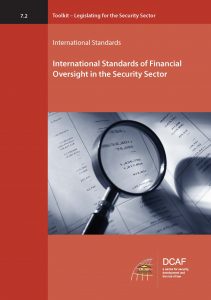
This Toolkit provides readers with easy access to internationally-adopted guiding principles, standards, and best practices of financial oversight of security sector institutions. The toolkit allows readers to access key international standards on budgeting and auditing in the security sector; compare existing practices and regulations in their countries with universally-accepted budgeting and auditing principles; use the international standards as a basis for proposals to political leaders and members of parliament for reforming the prevailing financial oversight system in the security sectors of their countries; and monitor and evaluate the performance of financial accountability institutions against international best practice.
For more information please
download the document Eng
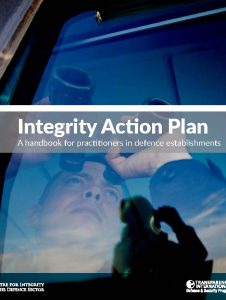
This handbook on Integrity Action Plans aims to help practitioners in defence establishments produce real and lasting change. The handbook outlines how practitioners ought to assess corruption risks and address identified weaknesses and shortcomings. Furthermore, the Action Plan emphasises the need for leadership and active support from the top in order to secure a clear mandate and how to tailor the chosen approach to the institutional context.
For more information please
download the document Eng
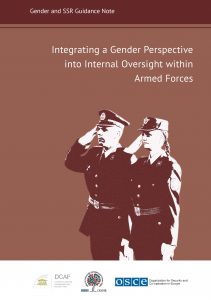
This guidance note is an essential resource for those working at the strategic or management level in the armed forces; gender units, as gender advisers and gender focal points; as equal opportunities officers and others responsible for human resources; and as those supporting reform processes or gender mainstreaming.
Page 1 of 8



